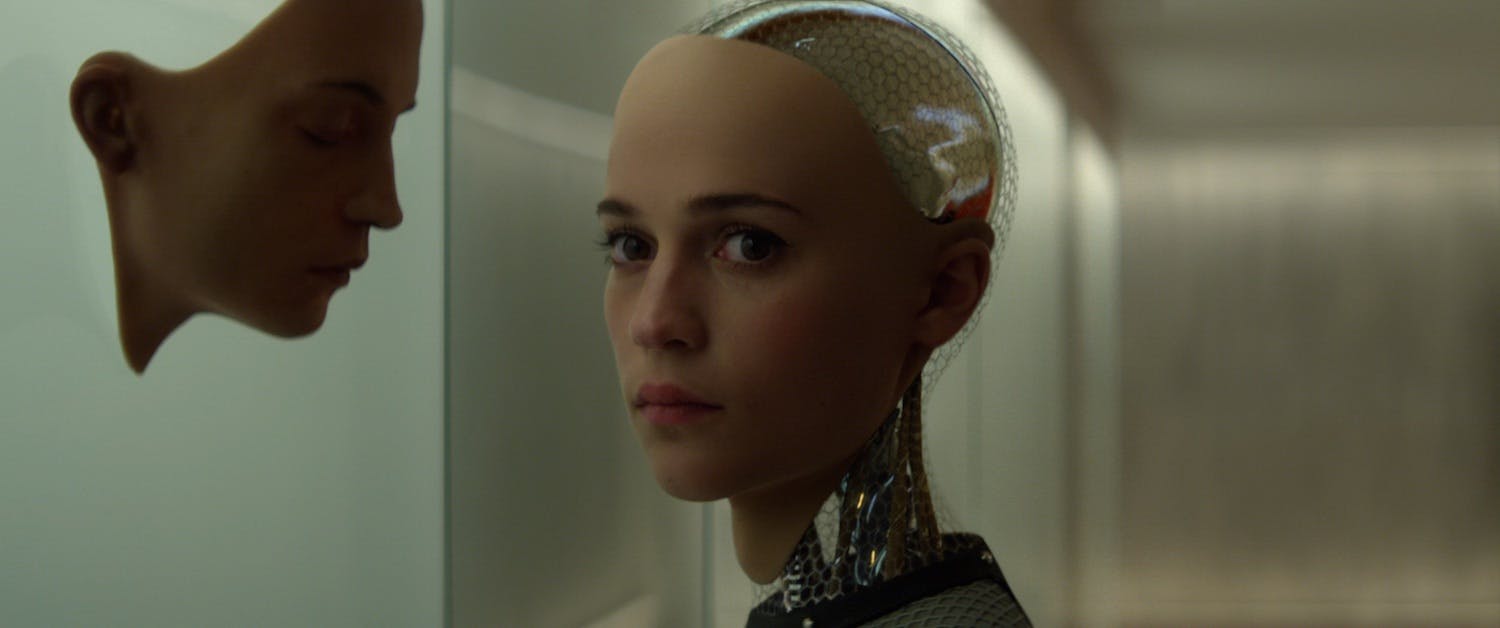JOE UTICHI PLACES ALEX GARLAND’S FILM IN A LINEAGE OF BOLDLY CREATIVE SCIENCE FICTION
Science Fiction: the playground on which some of the finest directors ever to live have done some of their very best work. Yet we continue to look down on ‘genre’ cinema, treating it as the popular but dim-witted cousin to high-brow drama. Ex Machina, like 2001: A Space Odyssey, Solaris and Blade Runner before it, demonstrates the inherent flaw in that approach. It’s smart, it’s sexy, and it has something to say. And isn’t that what cinema is all about?
At its best, sci-fi is allegorical, reflecting true human experience in fantastical worlds. Or it’s speculative, examining our passions and frustrations with technology and imagining paths we may not wish to tread. Alex Garland’s film is both, delivering us to a future that feels ever less distant, in which the idea of high-functioning artificial intelligence has been realised, and placing his robot character, Ava (Alicia Vikander), at the centre of the kind of ego-driven power struggle humans have faced for as long as we’ve walked the earth.
For Garland, it all seems to return to fear: what we fear about one another, and what we fear about the role of artificial intelligence in making us obsolete. ‘I want to believe that we will, one day, create a conscious AI,’ says the writer and filmmaker. ‘But I don’t find them frightening. I’m optimistic about the longevity of our civilisation if we can learn to see ourselves as part of a lineage that would one day include AI. If we don’t develop AI, our story in this universe is going to be a lot shorter.’
In the contained, tense three-hander he’s developed, Ava is the most redeemable character. Nathan (Oscar Isaac) struggles to control his creation, and Caleb (Domhnall Gleeson) sees himself as Ava’s protector. While they’re busy waging psychological war on one another, neither man recognises the tremendous agency Ava’s consciousness has given her.
‘The weight this film puts on these three actors is immense,’ Garland says. ‘There are so many games being played, and they rose spectacularly to the challenge.’
Indeed, says Garland, a nod for his film is a nod for the hard work of its entire cast and crew. ‘I shrink from the word “director”, because I know the implications of that job title. Film is a collaborative art-form; it’s synthesis. And out of this creative butting-of-heads can come something really magical.’



